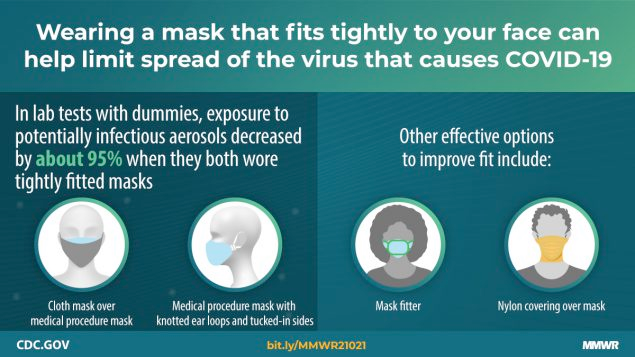
1/ Q: Is COVID-19 99% survivable?
A: Yes- BUT those odds are not as good as they sound. 🎲
Ask yourself- would you let your family board a plane if 1 out of 100 passengers were going to be thrown out of the plane mid-flight? ✈️
A: Yes- BUT those odds are not as good as they sound. 🎲
Ask yourself- would you let your family board a plane if 1 out of 100 passengers were going to be thrown out of the plane mid-flight? ✈️

2/ The Nerdy Girls are in the business of statistics & public health, so we *totally get* & *applaud* 👏 the desire to put risks in context. In 2019 there were roughly 36,000 automobile deaths in the U.S., each one a tragedy for a family....
3/ And yet, we do not generally recommend not driving to reduce this risk.
We DO create rules of the road & invest in new technologies to make driving as safe as possible, which has more than halved the automobile fatality rate from 1970s to today. 🚗
We DO create rules of the road & invest in new technologies to make driving as safe as possible, which has more than halved the automobile fatality rate from 1970s to today. 🚗
4/ So, what is the actual fatality rate for #COVID19? How does that equate to other risks?
First, a refresher on mortality rates. The Case Fatality Rate (CFR) is calculated as the number of COVID-19 deaths out of the number of confirmed cases.
First, a refresher on mortality rates. The Case Fatality Rate (CFR) is calculated as the number of COVID-19 deaths out of the number of confirmed cases.
5/ Because we know we are only catching a fraction of cases with testing, the number we care more about is the Infection Fatality Rate (IFR), which is the fraction of people who die of COVID-19 out of *everyone* who has been infected.
6/ In other words, if infected with #COVID, what are the chances I will die (on average)?
While the IFR was difficult to estimate early on, we’ve gotten a better grasp on this over time thanks to a variety of antibody studies that help us better estimate the true # of infections
While the IFR was difficult to estimate early on, we’ve gotten a better grasp on this over time thanks to a variety of antibody studies that help us better estimate the true # of infections
7/ So, what is the best estimate for the IFR?
As we’ve previously discussed, a single #IFR is not hugely useful, because it varies tremendously with age. This means the IFR for a country depends on the age composition of the population as well as who gets infected. #demography
As we’ve previously discussed, a single #IFR is not hugely useful, because it varies tremendously with age. This means the IFR for a country depends on the age composition of the population as well as who gets infected. #demography
8/ Our current best estimate of the *overall* IFR, averaged across many countries, is 0.68%, but this ranges from 0.004% for ages 0-34, 0.75% for ages 55-64, 2.5% for ages 65-74, and 28.3% for those 85+. 

9/ Applied to the size of the U.S. population, if everyone were infected with SARS-CoV-2, a 0.68% IFR (99.32% survivability!) would equate to over 2.2 MILLION deaths, roughly 8X the U.S. combat deaths in World War II.
10/ In the United Kingdom, an #IFR of 0.68% would equate to over 460,000 deaths, more than 23X the deaths on the first day of the Battle of the Somme, the deadliest day in the history of the British Army.
11/ How do these rates compare to the chances of dying in an #automobile accident each year? 🚘
We can see that if you are under 35 you have *less* risk of dying from COVID-19 if infected than your chance of dying in a car accident over a year in the U.S.
We can see that if you are under 35 you have *less* risk of dying from COVID-19 if infected than your chance of dying in a car accident over a year in the U.S.

12/ For anyone ABOVE age 35, the risk of dying of COVID-19 if infected becomes MANY times higher than the risk of death from a whole year of driving. 🚙
13/ The risk of dying from COVID-19 is 18X the risk of death from a year of driving for Americans aged 45-54, rising to 58X the risk for 55-64 year-olds, 192X for 65-74 year-olds, & 500X the risk for 75-84 year-olds.
14/ For anyone over age 20, COVID-19 infection is also many times more deadly than the seasonal flu (~15 X as deadly for 50 year-olds).
dearpandemic.org/is-covid-reall…
dearpandemic.org/is-covid-reall…
15/ Finally, remember that death is only the tip of the iceberg as far as the physical effects of this virus, with many times more hospitalizations than deaths and evidence of potential long-term organ damage and "Long Covid" for those infected.
16/ So, while “99% survivable” sounds like no big deal, the next time you hear this:
1️⃣ propose the airplane roulette game…any takers? 🎲
2️⃣ ask them to do some quick math by taking 1% of 331 million.
Either way, this is a case where 1% makes all the difference in the world.
1️⃣ propose the airplane roulette game…any takers? 🎲
2️⃣ ask them to do some quick math by taking 1% of 331 million.
Either way, this is a case where 1% makes all the difference in the world.
• • •
Missing some Tweet in this thread? You can try to
force a refresh





